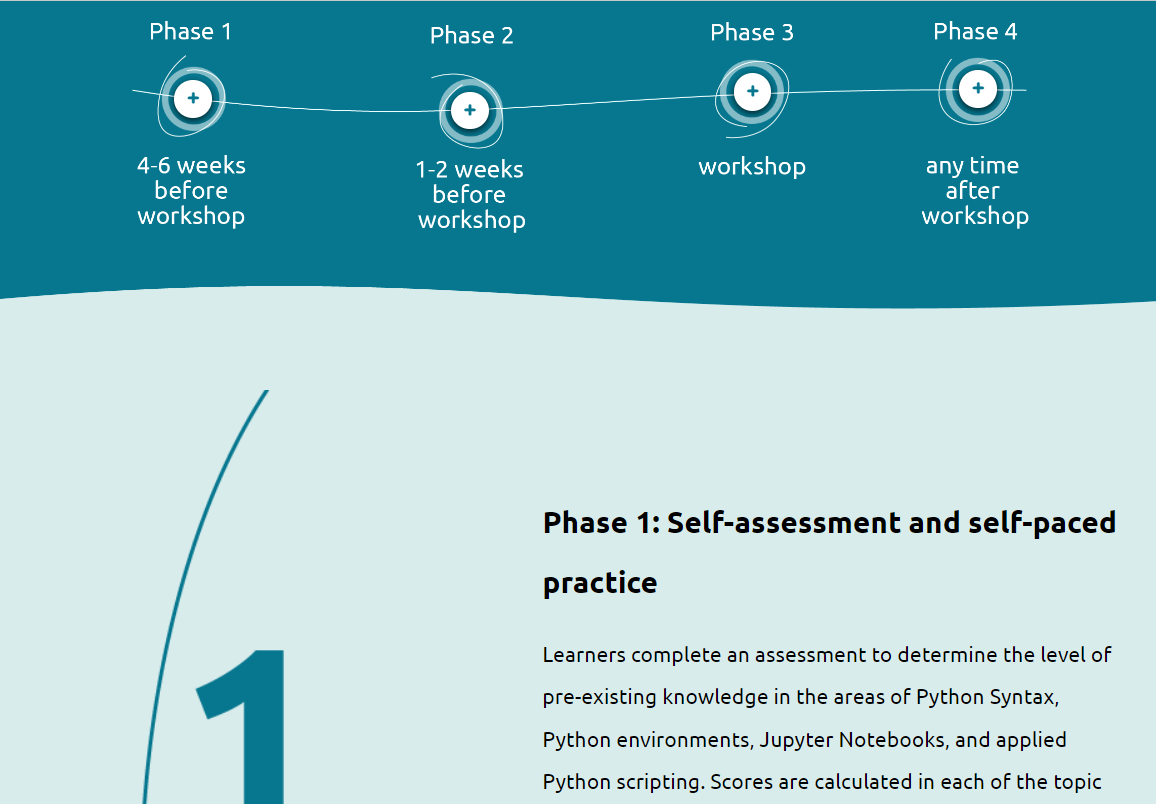Blended Learning Program
This program was developed in response for a request for Python training for new graduate students. After a more thorough assessment of need was completed in collaboration with department leadership, we concluded that more than just a one-off training was needed. This group needed a flexible peer learning journey that can be delivered each year without third party intervention. Thus, we developed the below multi-phase custom blended learning program.
-
Learning Environment Analysis and Needs Assessment
Defining learning goals in collaboration with program leadership
Developing modular learning in collaboration with subject matter experts
Project management for both internal staff and external collaborators
Developing and implementing a program evaluation
Facilitating Train-the-Trainer sessions
-
Twine (HTML/CSS)
Jupyter Notebooks
Adobe Illustrator and MS Paint
Camtasia
Articulate Rise
Google Suite
Notion
Program Goals:
Guide students through structured Python practice to promote readiness for their Earth Systems Science coursework and research.
Prepare students to be self-sufficient in solving new or different Python programming problems they encounter in their future Earth Systems Science coursework and research.
Empower Earth Systems Science programs to sustain a culture of curiosity regarding programming skills year after year.
The department leadership was proud of their new recruiting strategy that brought in a talented and diverse new cohort of graduate students. However, since programming experience is not a requirement for entrance to the graduate program, they noticed these new students struggle with the programming requirements in their coursework. To retain these students and help them succeed as future scientists, a structured extracurricular blended learning journey was developed.
Students begin the semester with a self-assessment of their current Python programming skill level, and are assigned custom self-paced lessons depending on their scores. Following the practice, students meet with senior graduate students for knowledge checking sessions to ensure no new misconceptions are introduced during the self-paced practice. Students then participate in a project-based workshop where they engage with foundational research concepts and practice a troubleshooting framework. The cycle concludes with a Train-the-Trainer session for the next group of senior graduate students, who will facilitate the next iteration of the learning program.
Launch the digital brochure below for additional details.
